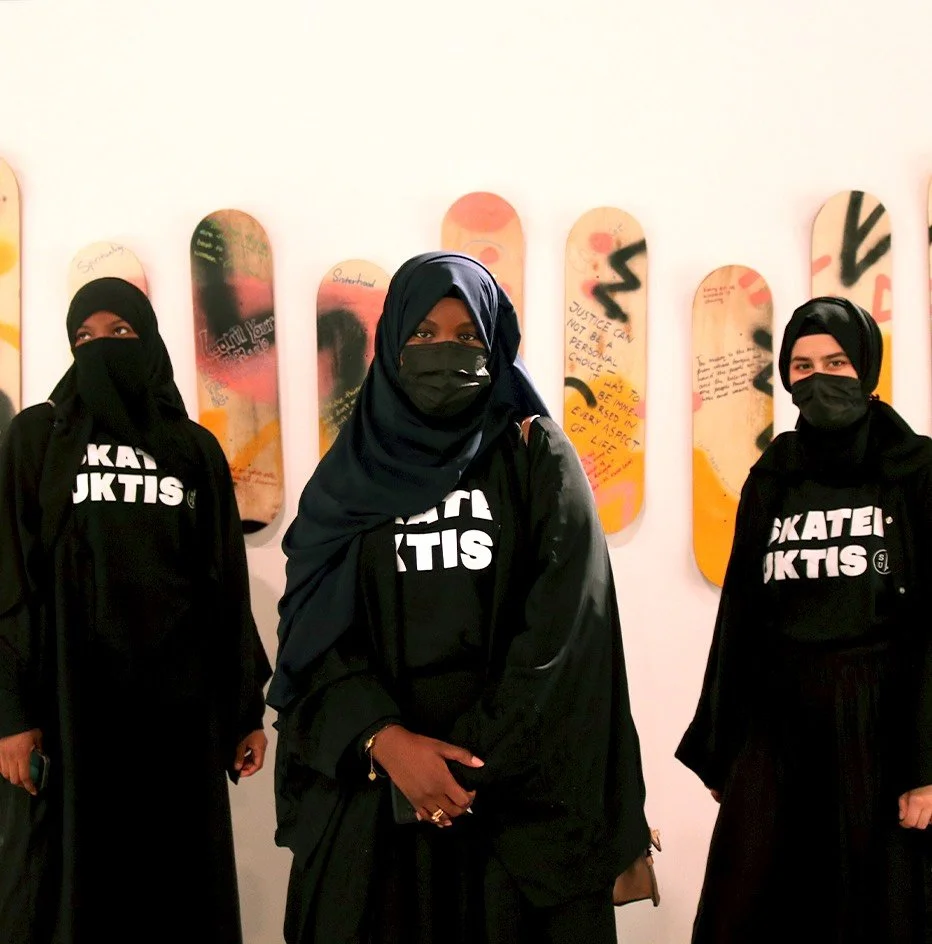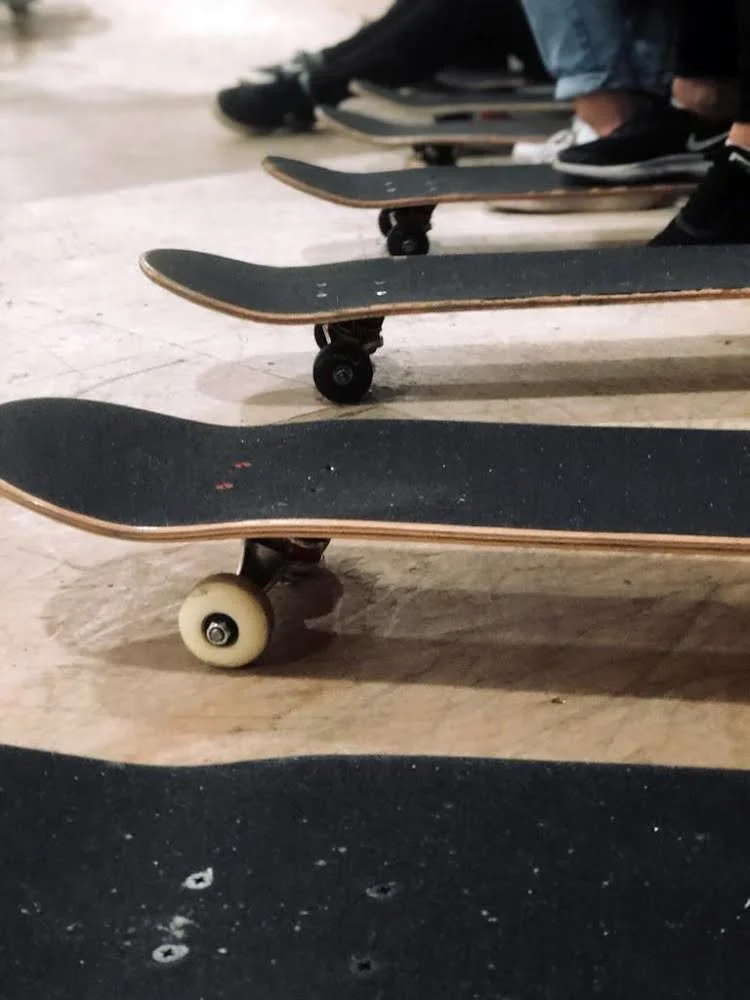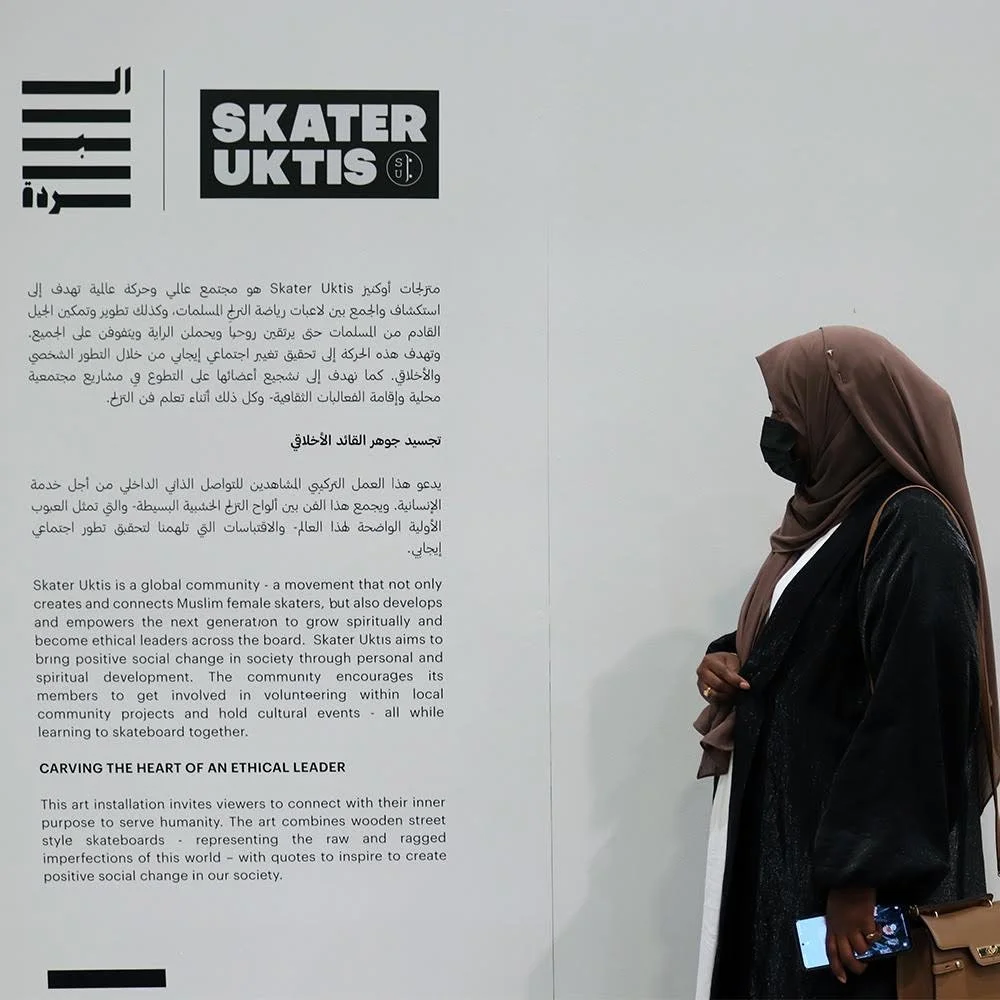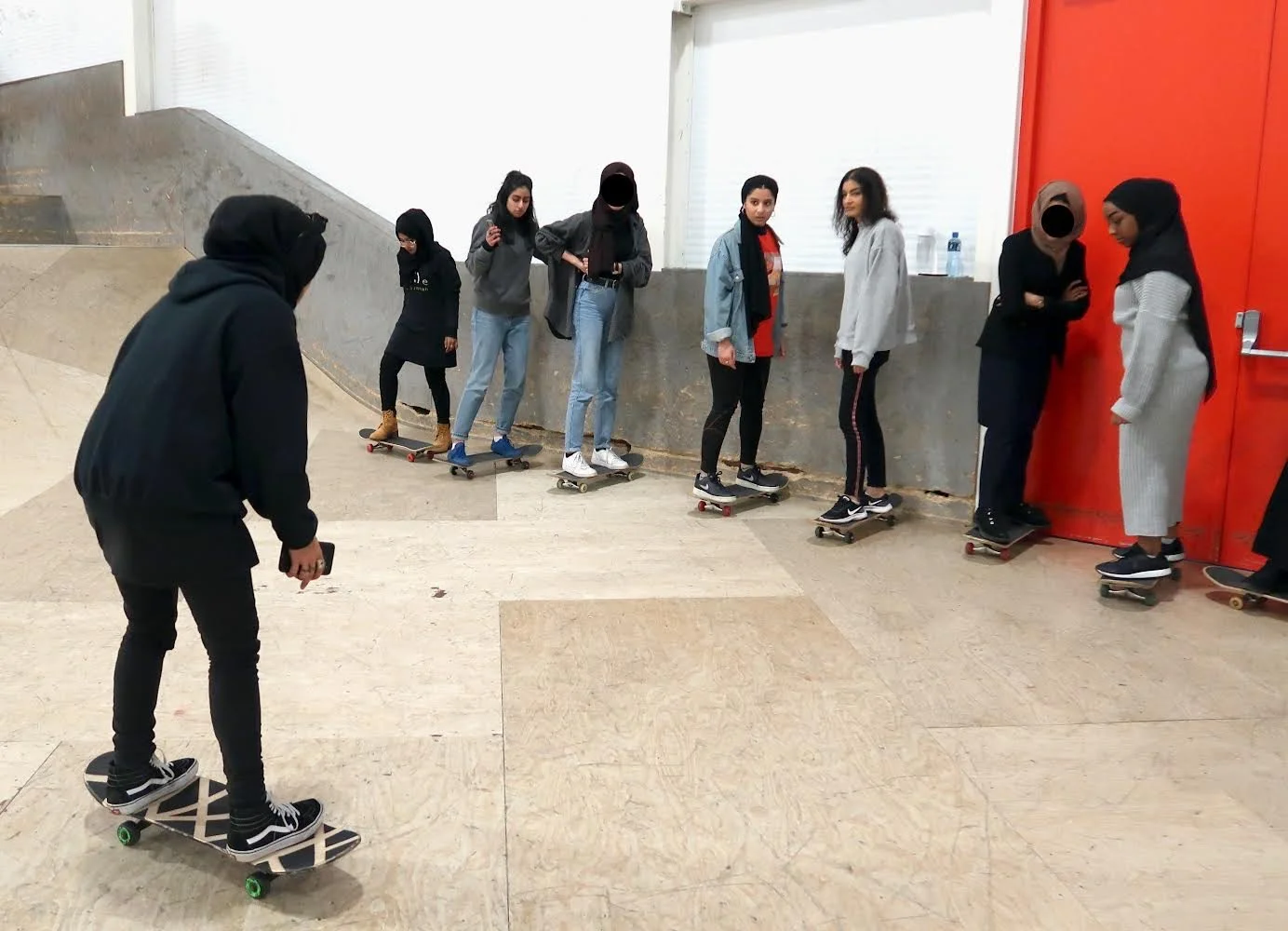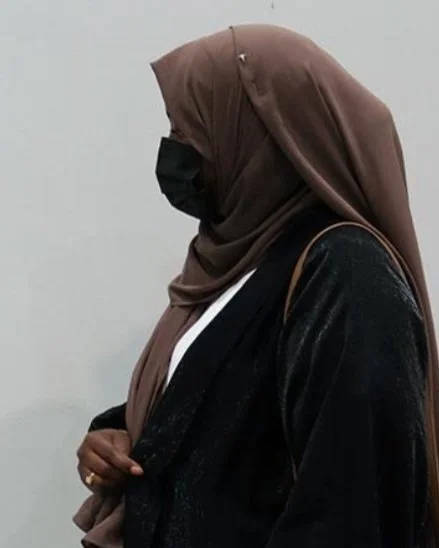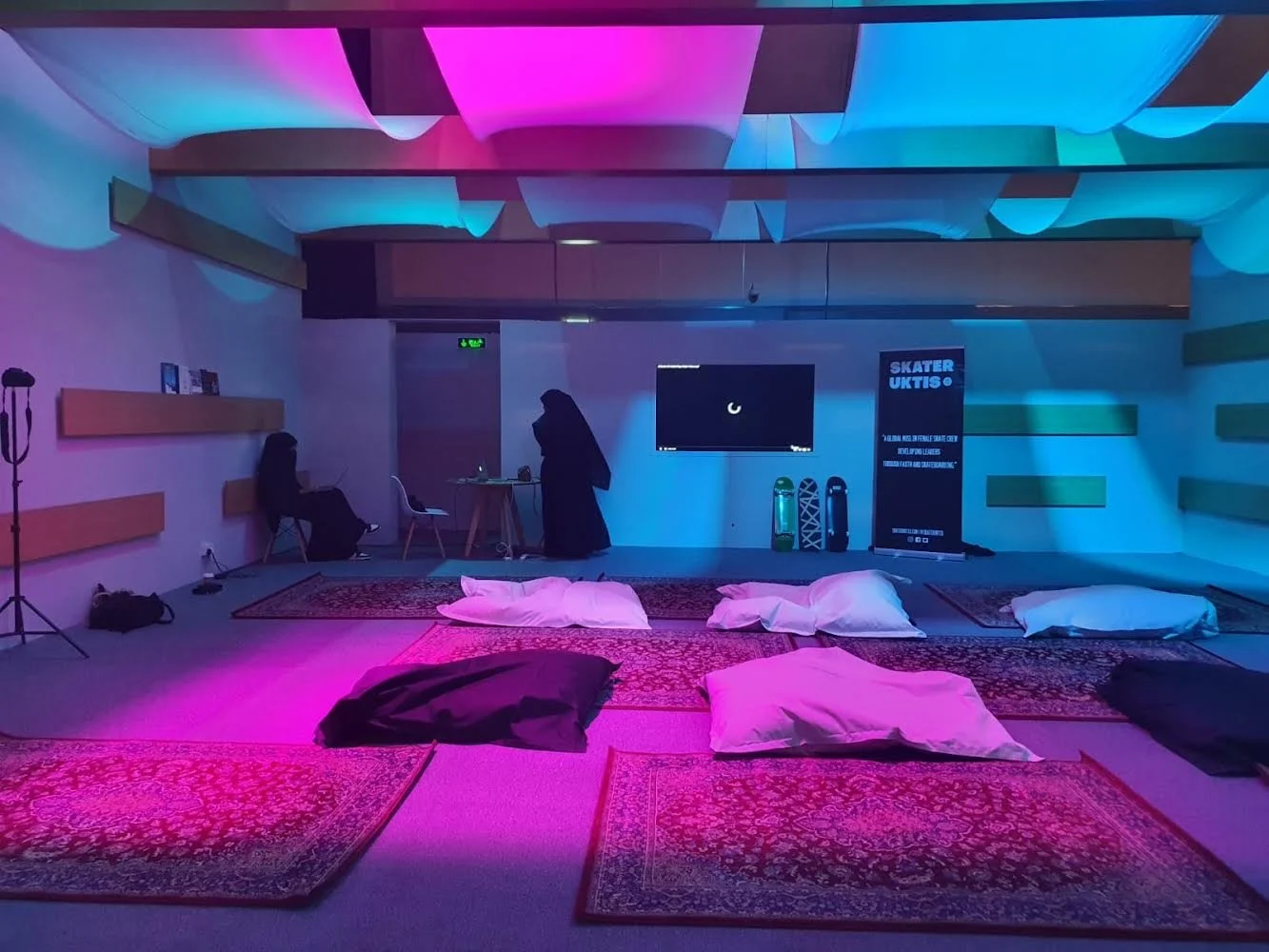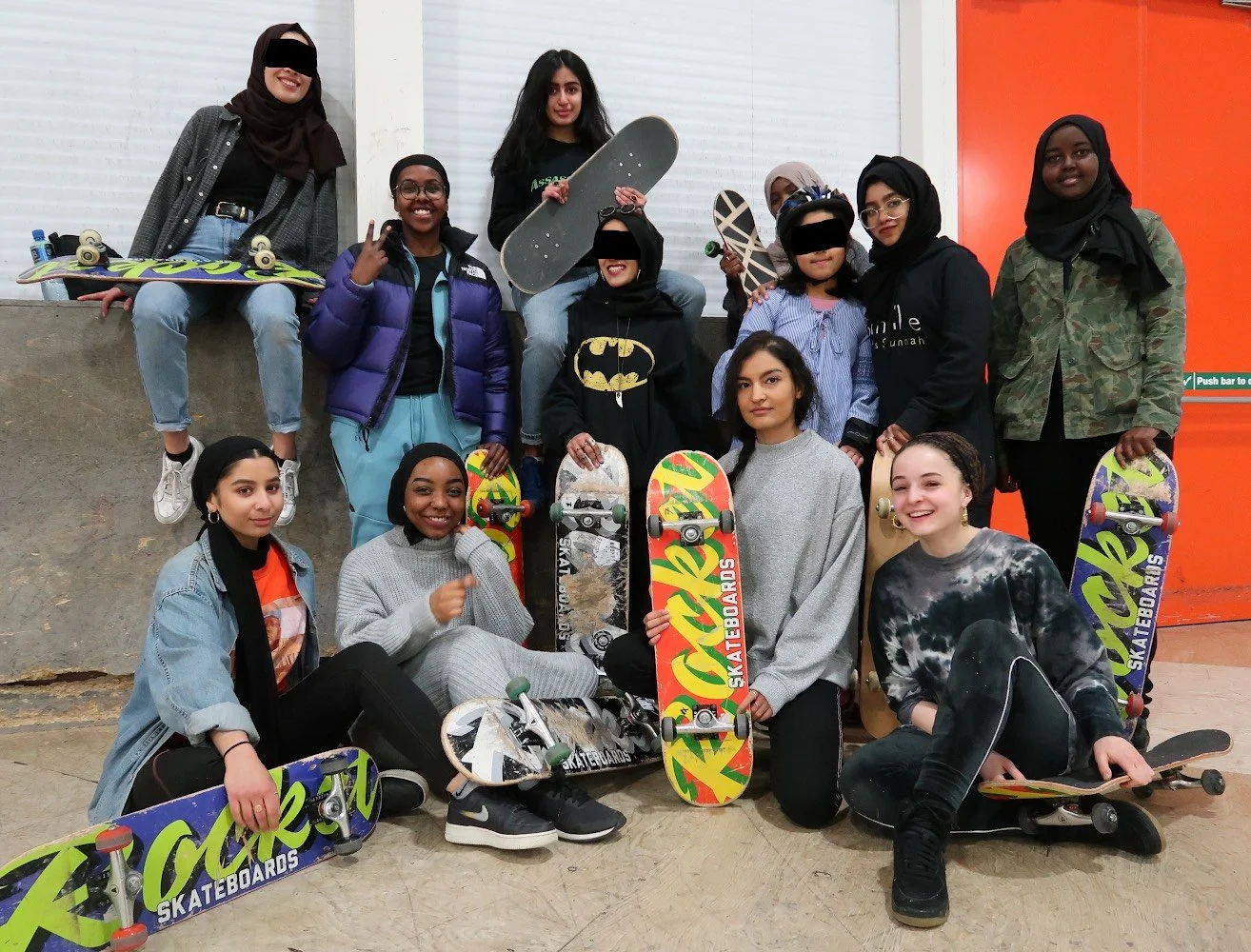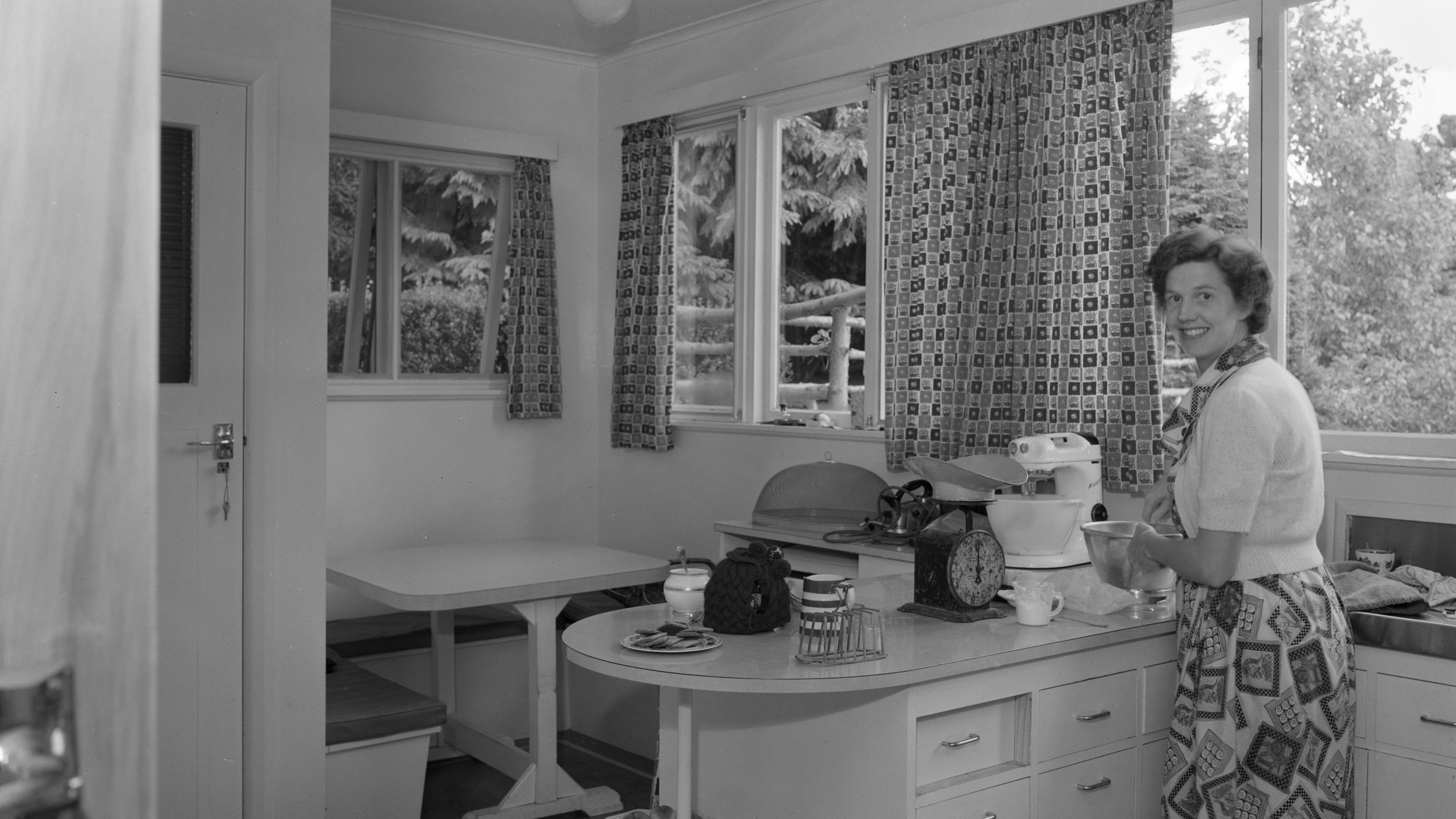Skater UKTIS: The All-Women, Muslim and International Crew Redefining Skate Culture
A BODY MOVEMENTS ISSUE EXCLUSIVE
Refreshing in its ethos and inspiring in its growth, Skater Uktis is the all-women international skate crew empowering Muslim women in redefining skate culture. Through their spiritual community, Skater Uktis nurture self-development and leadership qualities, as well as practising their faith and, of course, skate skills, across 26 countries globally.
Interview by Ella Kenneally
If you’ve ever been to a skate park, you’ll know what I’m about to say. The sea of men, predominantly white men, is overpowering, leaving what feels like little space for anyone else. Disrupting this narrative is Skater Uktis.
The community they have created shares a love of skateboarding combined with faith, through a platform that allows them to connect with sisters across the world. “We really are a sisterhood run by the sisterhood,” says Hafsah Mohammed, Skater Uktis’ Head of Social Media. Ukti or Ukhti translates to “my sister” in Arabic and is truly a fitting term for their sisterhood and legacy.
Initially the relationship between skating and faith seems surprising, yet, Skater Uktis have created a new narrative where both go hand in hand. Hafsah elaborates; “I don't know if you've ever skated before but you do fall and fail a lot. Now, that is a prime principle of leadership. You're always failing, you're always getting to learn your strengths and weaknesses, and with that, it does essentially build you up to be a leader. Similarly, with religion you are again learning how to improve your life, you're learning new things that challenge your current perspective.”
Hafsah – who is Tanzanian, but born and bred in London – speaks with such pride, yet humility, of the movement she is a part of. Having skated for two years, Hafsah was very much like the people she was trying to inspire; “I didn't want to skate by myself. I didn't feel comfortable skating by myself.” With high energy and an infectious laugh, she expresses how they are so much more than just a skate crew. From skate seshes to spiritual seshes, Skater Uktis brings her and so many others joy, solace and empowerment.
Ella Kenneally: As a community you’re on a mission to empower Muslim women in redefining skate culture all over the world, but not to challenge the stereotypes of Muslim women. Why is this so important to the ethos of Skater Uktis?
Hafsah Mohammed: We would automatically be challenging Western stereotypes just by being a practicing Muslim. Although this inevitably happens, our primary reason is to redefine the skate space, to simply empower Muslim women around the world to feel confident in these spaces in which they feel they don't belong, alongside developing their religion. You don't want to take away from the enjoyable aspect of it, you don't want it to feel like you can’t skate for yourself and your own enjoyment. You do just want to feel that sense of self-fulfilment, whether you're skating or not. You're doing this for yourself, that's self-satisfaction. Then, of course, you can continue to inspire women through what you want to do and through what you're doing willingly, instead of having to feel like you're doing it just to make a political statement. Growing in that aspect is why it's important to us.
EK: So it's more about inspiring rather than changing Muslim women or what they believe in. What was the original motivation and inspiration behind your community guidelines and Skater Uktis as a whole then?
HM: We wanted to bridge that gap of being a minority within a minority. In terms of the spiritual aspect of it all, we’re very conscious of what our final Prophet Muhammad SAW said, and how everyone is born to be a leader influencing someone or the other. This could be a friend, sibling, someone or the other, and that automatically puts us in a position of leadership. When we say leader, it’s about serving the community and not being a dictator. We want Skater Uktis to be a community that serves others and not just ourselves; this is a key part of our faith. We wanted to change the dynamic of what makes a leader, a leader. Being in that type of community where you're around a lot of other women from different walks of life, and different experiences, you get to feel that sense of "Okay, I can actually grow in this environment, I feel like I'm not being left out.”
Essentially what we do as a movement is combine two elements: first, skating and, second, a space. With the skating side, it's more about nurturing leadership skills and giving Muslim women that confidence to be in spaces where they feel like they don't belong. Generally with any sports scene, it's very male-dominated. So, it can get a bit challenging and intimidating for women, let alone Muslim women, to join those types of spaces – we try to make them comfortable.
EK: Having safe spaces like that where you can grow and learn is so important for women, especially in male-dominated sports like skating. Why does Skater Uktis focus on Muslim women solely?
HM: Women of other faiths are actually welcome, which we emphasise in the spiritual sessions. But, it's harder mainly for Muslim women who are quite visibly representing Islam, or have felt the disparity between themselves and their peers in that type of scene. It's just about seeing that representation. It's like “them” and “us” and we don't want it to be like that. We want it to be an all-for-one kind of thing.
EK: Being a visible female Muslim skater, have you ever found your gender or faith to be a barrier within the sport?
HM: Not so much with the faith side. However, it can create that barrier, because you don't often see people who look like you in this space. It can be terrifying and intimidating, and make you feel like you’re intruding on the place, but you do get women in the scene more and more, which is obviously great. With faith in itself, it doesn't necessarily restrict women. It actually does the complete opposite – it really encourages women, and Muslims in general, to seek excellence in anything that they do, to look after their health, to be outgoing in schools, and pretty much do anything that we are able to do with our bodies to the best of our abilities. Really, essentially, that's what religion teaches. So in terms of it being a barrier, it doesn't do that. But I guess from the outside, people would view us differently; it’s more of a barrier between us and them. Being a Muslim, a woman, and a person of colour, and then being able to actually skate. There’s a lot of mental barriers to go through. There’s levels to it. You’re just trying to get over those, to get to a “I just want to skate” state.
EK: I love what you say about skating being 90% mental and 10% physical, it’s so true, and such a refreshing way to look at a sport. How do you feel the mental and physical impact of skating affects women coming into the sport?
HM: I think it's a great way to look at it, because what I've learned personally, and I feel like I'm speaking for a lot of women in Skater Uktis, is that the challenges that we are able to overcome are only more of a challenge because we're scared. Once we overcome that fear of failure, and understand that it's inevitable, then it gets a lot easier to move on to the next step. You're aware now that “There's a possibility of this happening, but I know what I've gotten involved in”. I think having that type of mindset will essentially move you forward, because you'll be in practice, and of course, that moves on to the physical side of things. You've got to practise after you've overcome that mental fear, and essentially just get better at what you do.
It comes in a lot of expressive arts as well, like when people talk about having a creative block. It can literally be from anything, just not having inspiration around you. Again, it's that mental state of not being able to overcome something that will then affect how you do something physically. Once you put your mind to it, you can do anything.
EK: You discuss these issues a lot in your weekly Spiritual Sesh; can you tell me a bit more about them, and what you hope to achieve with them?
HM: Our main aim was to expand globally and to connect with people. It started during the pandemic, it was really important for us to stay connected. The reach between us and everyone who has attended has been great, especially with the feedback that we've received. People from all walks of life are coming in and saying, “Wow, I've benefited from everything you’ve taught,” especially as all the knowledge that is shared is easy to grasp. That's why we always emphasise that women of all faiths and non-faith are always welcome. Overall, it’s really just about staying in touch with your religion, and understanding that this is a big part of the sisterhood. Just knowing that religion is a big part of growth and leadership, which are the main parts of what we do.
“Being a Muslim, a woman, and a person of colour, and then being able to actually skate. There’s a lot of mental barriers to go through. There’s levels to it.”
EK: I even saw one of your representatives in Australia say she sometimes comes to the spiritual sessions at 3am!
HM: We were aware of how big the time difference was between us and Australia. But, when you can actually see someone [from there], you’re like, "Wow, you're actually here, and it's the middle of the night for you!” If that's not dedication then I don’t know what is. It only motivates and encourages us to continue even more, to make sure that these spaces are held with the best message they can be.
EK: Considering that you started as the pandemic hit, did you ever expect to achieve the growth you have and reach so many people and countries?
HM: There are nearly 20 countries that we’re running in and we have more in the pipeline. Honestly, even now, it's just a bit mad! At the beginning, we had this aim that we wanted to expand globally, but when you actually see it happening, and in the spiritual sessions, when people are saying, “I'm learning from this country, from that country,” you're just taken aback. We have to process that we've actually got people calling in from here and there. We’ve had sisters joining from Mauritania which isn’t too big of a country, so to see that it has reached countries like this is amazing.
EK: When I was going through your Instagram, I saw that Skater Uktis held their first ever art installation, “Using Islam and skateboarding to empower our sisters globally”, in Dubai for a government organised festival! Can you tell me a bit about this incredible achievement and the message that you wanted to put out with the artwork?
HM: It was a massive stepping stone for us as Skater Uktis because it was recognised on a government level. They reached out to us and we got invited, so it really went to show that we have a unique movement. It was an incredible experience and our very first major international “tour”. The two art installations that we did, firstly encompass who we are as a movement by using [things like] raw skateboards. The quotes on the skateboards were related to Islam and angled towards empowerment of women and leadership. Our two art installations were exhibited right outside the main hall where the minister was speaking, so that was an incredible thing to feel and witness. Alongside this, we a ran a workshop on psychotherapy and skateboarding in Islam as one of the team members is also a qualified psychotherapist. This really elevated our message and allowed for us to connect further with sisters.
EK: I love your comic series, Digi Uktis, and how you’re teaching through art and humour. I found your most recent strip on Muslim women and their menstrual cycles during Ramadan really thought-provoking. Why did you create Digi Uktis, and do you feel it’s important to shed light on commonly unspoken subjects such as these?
HM: So, we follow the lives of Skater Uktis in general, within the digital world. These characters all share random life experiences, which are a mix of true stories from our own Skater Uktis members, as well as some exaggerated ones just for banter. But, essentially it's to highlight things that can and do actually happen in the lives of Muslim women. And through this initiative, we hope to entertain and educate the masses on all of these real encounters that Muslim women face globally. Using humour and positivity in these comments gives us an extra way of connecting and relating to our audience by being in touch with current affairs, and how this could affect us as Muslim women.
EK: How do you think content like this impacts the sporting world?
HM: I think it's almost a taboo, and I think that’s the only reason it's not spoken about. There's some cultural shame surrounding it but I definitely think it needs to be spoken about a lot more. People genuinely want to know, and they're genuinely not aware of what it's like when it comes to Ramadan – not being able to fast and things like that. So I think [it helps] to educate people and to reduce shame about it. Understanding that people just want to know and it won't hurt to tell them.
EK: You're completely right. There are so many taboo subjects that people don't speak about in sports, especially with regard to women. We saw this with Simone Biles at the Olympics, when she ultimately put her mental health and safety before the competition. I think discussing these topics at a grassroots level, like you do, is so important, because you’re educating everyday people who may not have considered these subjects before. How do you think society can make real change for Muslim women in skating and sports in general?
HM: I think if we want to see a change, it’s literally down to us – those of us who want to see the change. There is an increasing number of Muslim women in sports, and things are becoming a lot more accessible for all abilities, for all people. So it just comes down to willpower, really. If you want to see that representation, you have to be it, if you want to see that change, you have to be that change.
EK: Finally, what can we expect to see next from Skater Uktis and what do you hope for the future of Muslim women in skateboarding?
HM: I think for one, just to keep expanding globally, that’s a big aim of ours. Then building on our current initiatives to continue nurturing and being ethical leaders. Some join us for fun but there are others who do have plans to become pro skaters; this involves encouraging some of our sisters to prepare for the Olympics, in national and international games if God wills. So, we hope in the future that this sisterhood and this space is a means for them to feel comfortable and confident in achieving this. And essentially, getting in touch with that leadership side of things, so that you are confident enough to apply it to other aspects of your life. We want to serve the community at large and be there for others, overall promoting community building.

